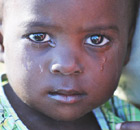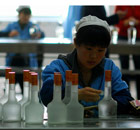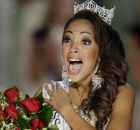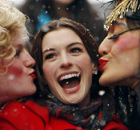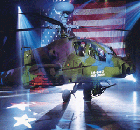Top Biz News
Countering the counterfeiters of int'l drinks brands
By Andrew Moody (China Daily)
Updated: 2010-02-01 08:00
 |
Large Medium Small |
Counterfeiting international drinks brands remains a major problem in China with many fakes flooding the market.
Leading whisky labels are major targets. The Scotch Whisky Association (SWA), representing the major distillers, investigates up to 50 suspect products a year in the country.
David Williamson, public affairs manager for the SWA, based in Edinburgh, says his body continues to cooperate on the issue with Chinese authorities. "We have worked closely with Chinese officials, both at national and provincial level, to secure strong protection for Scotch whisky in the market, " he said. "The association is a regular visitor to the country and Chinese officials have also visited Scotland on several occasions to learn more about the industry."
One brand particularly targeted by the counterfeiters is Chivas Regal, which overtook Hennessy Cognac as China's leading imported spirit in 2005. It is popularly said there is more Chivas Regal drunk every year in China than the annual output of the company's distilleries.
Jim Long, a spokesperson for Chivas Brothers, now part of drinks giant Pernod Ricard, says it is something of an urban myth. "It is a good line but it is an exaggeration of the reality. We are the number one and therefore we are a target. China is not the only place where we have this problem," he said.
Another problem in China is brands passing themselves off as Scotch whisky. One discovered in an investigation was Glen Highland Green Blended Whisky. It was being distilled in Fujian province and had no links with Scotland whatsoever.
"The product was originally found on sale via a website. Following investigation and analysis of the suspect product, we worked with provincial officials on the case, with stock seized and removed from the market," added Williamson.
|
||||
The Chinese government is keen to protect the integrity of Scotch whisky, of which around 17 million bottles are imported in the country every year. The trademark office of the State Administration for Industry and Commerce agreed to protect Scotch whisky by registering it as a collective trademark, the highest level of protection granted in the country to a foreign spirit drink.
Lindesay Low, a legal adviser to the SWA specializing in the Chinese market, said this had been an important step.
"It will help to ensure Chinese consumers and Scottish distillers are protected from fake products," he said. "Over a number of years, we have welcomed the commitment and co-operation of the Chinese in tackling imitation products passed off as Scotch whisky in China."



